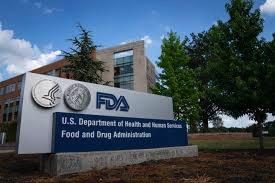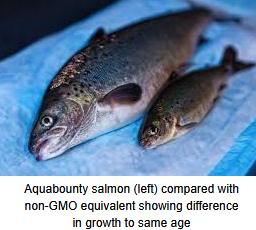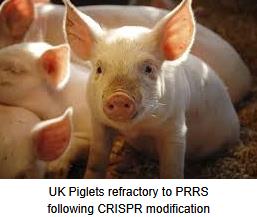 The U.S. Food and Drug Administration has issued Guidance for Industry (GFI) #187A Heritable Intentional Genomic Alterations in Animals: Risk-Based Approach and a revised draft GFI #187B Heritable Intentional Genomic Alteration in Animals: The Approval Process.
The U.S. Food and Drug Administration has issued Guidance for Industry (GFI) #187A Heritable Intentional Genomic Alterations in Animals: Risk-Based Approach and a revised draft GFI #187B Heritable Intentional Genomic Alteration in Animals: The Approval Process.
In addition, the FDA has entered into a Memorandum of Understanding with the U.S. Department of Agriculture to clarify their respective roles and responsibilities in regulation of intentional genomic alteration.
At the outset, the FDA jurisdiction over regulation of genetic modification should be limited to a judicial minimum. The Agency does not have the staff or expertise to understand the realities of genetic modification, whether by insertion or deletion of genes in livestock. There is obviously a justification for the FDA to be involved in genetic modification where the end product is a biopharmaceutical produced in eggs or milk.
Genetic modification of animals intended for food is a separate issue to biopharmaceuticals and is beyond the competence of the FDA. This is denoted by the almost two-decade process of approval of Aquabounty® salmon. Inability of the FDA to make considered decisions regarding approval within a reasonable time has placed the U.S. at a disadvantage with respect to the E.U. and China. The practical application of CRISPR offers advantages to breeders in developing livestock with resistance to disease, adaptability to heat and benefits yet to be determined.
 The April 2024 Memorandum of Agreement between the FDA and the USDA is intended to establish policies and procedures to enhance the exchange of information with the objective of enabling an efficient, seamless regulatory process.
The April 2024 Memorandum of Agreement between the FDA and the USDA is intended to establish policies and procedures to enhance the exchange of information with the objective of enabling an efficient, seamless regulatory process.
The FDA is encouraging developers of intentional genomic alteration to approach the Agency early in their research and development or to discuss the specific risk profile of the proposed product and the appropriate pathway for commercialization. This is a clear admission of technological ignorance, and that the FDA intends to continue using the established playbook of delay in making a decision.
 The FDA underperforms in the areas over which it has direct mandates including regulation of imported foods, inspection of foreign and domestic pharmaceutical plants. The FDA has a rap sheet of failures including the baby formula debacle, lead contamination of infant foods and failure to suppress bacterial foodborne infections associated with produce.
The FDA underperforms in the areas over which it has direct mandates including regulation of imported foods, inspection of foreign and domestic pharmaceutical plants. The FDA has a rap sheet of failures including the baby formula debacle, lead contamination of infant foods and failure to suppress bacterial foodborne infections associated with produce.
EGG-NEWS has long campaigned for a separate food safety agency independent of both the USDA and the FDA. Advances in genomic alteration of livestock justify extreme changes in the structure and implementation of food safety regulation.